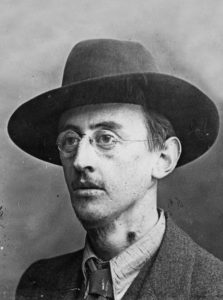Joseph Mary Plunkett (1887-1916) - Irish Revolutionary, Poet

Joseph Mary Plunkett was born on November 21, 1887, in Dublin, Ireland. He was the son of George Noble Plunkett and Mary Josephine Plunkett, and he had three sisters and two brothers.
Plunkett met his best friend, Thomas MacDonagh, while looking for an Irish language tutor. They both went on to become prominent members of the Irish nationalist movement and were instrumental in the planning of the Easter Rising.
Plunkett was a member of the Irish Republican Brotherhood (IRB), a secret society dedicated to the establishment of an independent Irish republic. He was also a member of the Irish Volunteers, an organization formed to promote the Irish nationalist cause.
During the Easter Rising of 1916, Plunkett was in charge of the military operations in the General Post Office (GPO). He fought alongside his fellow rebels for six days until their position was overrun. After the surrender, Plunkett was arrested and court-martialed.
Plunkett was sentenced to death by firing squad. He was allowed to marry his fiancée, Grace Gifford, in the chapel of Kilmainham Gaol before his execution. Their marriage inspired the song titled “Grace,” which has become a popular Irish ballad.
Plunkett was executed by firing squad on May 4, 1916, just hours after his wedding. His dedication to the cause of Irish independence, his commitment to the arts, and his bravery in the face of death are remembered as important parts of Irish history.
Plunkett was also a prolific writer and poet, and his work continues to be celebrated in Ireland and around the world. His poetry is a testament to his love for Ireland and his dedication to the cause of Irish freedom.